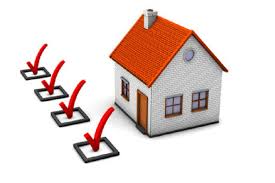What is rental property depreciation?
As a property gets older, the building’s structure and the assets within it wear out – they depreciate. The Australian Taxation Office (ATO) allows owners of residential rental properties to claim this depreciation as a tax deduction. Depreciation can be claimed under two categories – capital works and plant and equipment assets.
What are capital works deductions?
Capital works deductions relate to claims for the wear and tear that occurs to the structure of the rental property and any fixed items like the roof, walls, doors and kitchen cupboards.
Owners of residential property that commenced construction after 15 September 1987 are eligible to claim capital works deductions. These deductions can be claimed at a rate of 2.5 per cent per year for forty years.
If your rental property was constructed before this date, you should still enquire about the depreciation deduction available as often these buildings have undergone some form of renovation which can result in capital works deductions.
What are plant and equipment assets?
Plant and equipment assets refer to the easily removable fixtures and fittings found within a rental property. Common examples include carpet, blinds, air-conditioners, hot water systems and smoke alarms. Depreciation deductions for these assets are calculated based on their individual effective life as set by the ATO.
Unlike capital works deductions, depreciation for plant and equipment assets was affected by the 2017 legislation amendments.
What are the 2017 legislation changes and why do they matter?
Legislation passed in November 2017 brought about major changes to residential plant and equipment depreciation claims. These changes are important because they affect the amount of depreciation you can claim.
Under current legislation, owners of second-hand residential properties who exchanged contracts after 7:30pm on 9 May 2017 cannot claim deductions for previously used plant and equipment assets.
You can still claim depreciation for any brand-new plant and equipment assets you purchase and install in the property once it is income producing. For example, if you purchase a new hot water system while your property is being leased, you are entitled to claim depreciation for this asset.
What rental properties benefit most from depreciation?
While almost all residential property investors are able to claim depreciation, given the 2017 legislation, those who build or buy brand new rental property will usually claim higher deductions.
However, any residential property that has either been built or renovated since 1987 will have a structural claim that will give ongoing deductions for forty years.
How do you claim depreciation?
It’s a good idea to engage a quantity surveyor. Quantity surveyors are experts at assessing the value of construction work.
They’ll be able to provide you with a report on the rate of depreciation claimable on your property, and when you can claim it. You can then send the report to your accountant, who in turn will claim it on your tax return.
Author
Peta Stephen




